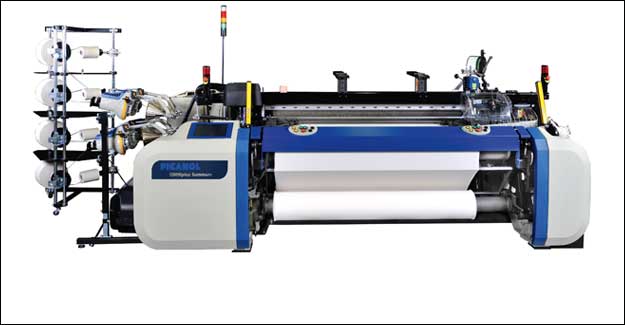Oerlikon Barmag Commissions Four Projects To Manufacture Automobile Airbag Yarn
Oerlikon Barmag Commissions Four Projects To Manufacture Automobile Airbag Yarn

Oerlikon Barmag has commissioned four projects to manufacture automobile airbag yarn from polyamide 6.6 (PA6.6) and polyester (PET) during the past 12 months, the company has announced.
These systems which have been installed by well-known yarn manufacturers in North America and China cover titer ranges of between 235 and 700 dtex for PA6.6, as well as between 470 and 550 dtex for PET, according a company release.
The proven SP4 spinning system with exchangeable melt distribution enables the conversion of the airbag yarn systems from PA6.6 to PET or vice-versa without much effort. To this end, yarn producers can react flexibly and swiftly to changing market requirements.
Airbags have generally been manufactured using polyamide 6.6 yarn. However, there is a noticeable trend towards using polyester.
According to industry estimates, demand for airbags will increase by 5 per cent annually over the next five years according to industry estimates. In fact, industrial yarn producers increasingly perceive the airbag yarn segment as a growth market.
The reason for increased demand for airbag yarns is the rise of road safety requirements worldwide.
As a matter of fact, the Indian government as well as the Department of Road Transport & Highways have revised their vehicle safety rules and regulations.
The new version, which comes into force in the fall of 2017, demands considerably greater occupant safety, particularly with regards to side and front impact.
As per estimates of numerous automobile manufacturers, compliance with these new safety rules and regulations can only be achieved with the installation of airbags.
Market research conducted by PCI Fibres has established that greater safety in vehicles is also a much-discussed topic in Latin America, which has led to a positive impact on the airbag and safety belt manufacturing industry.
Two South Korean airbag producers have already announced investments in Central America.
The average volume of textile fibres and filaments in an automobile is around 30 kg according to PCI Fibres. Around 19 per cent of this consists of airbag yarn.
This opens up a highly profitable growth market for industrial yarn manufacturers, according to the release.



 textileexcellence
textileexcellence 







